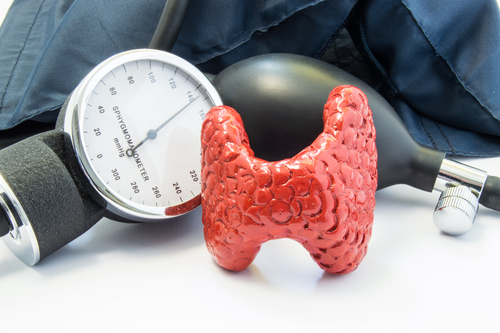Diagnosis and Management of Thyroid Disorders in Pregnancy and Post-Partum: American Thyroid Association 2017 Recommendations
M3 India Newsdesk Jul 12, 2017
The American Thyroid Association (ATA) recently promulgated latest guidelines on the diagnosis and management of thyroid disease in pregnancy and the postpartum period.

The 192 pages of clinical recommendations were published online on 6th Jan 2017, in the “Thyroid”. Key opinion leaders and decision makers in the ATA are confident that these revised guidelines will prove clinically instrumental in improving patient care and reducing the burden of disease.
Co-chairs Erik K Alexander MD, Brigham and Women's Hospital and Harvard Medical School, Boston, Massachusetts, and Elizabeth N Pearce, MD, MSc, Boston University School of Medicine; conveyed through an ATA press release -
"These guidelines coalesce the best available evidence into clear clinical recommendations and will improve the health of many, many mothers and newborns alike"
What New Information and Recommendations does this latest set of Guidelines Offer?
Sections that are newly added
- Thyroid disease during lactation
- Thyroid dysfunction in women with infertility
- Fetal and neonatal implications of maternal thyroid disease
Sections with updated information
- Thyroid-function testing
- Iodine nutrition
- Thyroid antibodies and pregnancy complications
- Treatment of thyroid disease during pregnancy
- Hypothyroidism in pregnancy
- Thyrotoxicosis in pregnancy
- Thyroid nodules and cancer in pregnancy
- Screening for thyroid dysfunction in pregnancy
- Future research needs
Special Emphasis on Diagnosis of Thyroid Disorders in Pregnancy
The guidelines strongly re-iterate to clinicians that the interpretation of thyroid function tests changes in case of a pregnant woman.
Dr Pearce made it clear that
"An important point about the guidelines is that thyroid-function tests need to be interpreted differently in pregnant women than outside the setting of pregnancy," Pregnancy causes a plethora of physiological changes in a woman which impact her thyroid function as well. Hence, “normal levels” in pregnancy are definitely different.
Dr. Pearce also acknowledged the fact that defining the upper limit of normal for TSH in pregnant women has been a grey area since very long. However, she opined that "huge amount" of new data about normal pregnancy reference ranges has facilitated greater clarity about the interpretation of TSH in pregnancy.
Management of Hyperthyroidism in Pregnancy: A Clinical Challenge
The new guidelines make it amply clear that
Neither methimazole (MMI) nor propyl thiouracil (PTU) is completely safe in pregnancy. Both pose risks of teratogenicity.
For non-pregnant women suffering from thyroid disorders, it is advisable to have a thorough discussion about risks versus benefits of pregnancy, with their consulting clinicians. This is to ensure that the woman makes an informed decision regarding conception and pregnancy and fully aware about the risk that her thyroid disorders can pose during pregnancy.
This would ensure a prior plan, devised by the consulting doctors to manage the associated risks adequately well. However, the safest and the most pragmatic approach would be to consider definitive therapy, to restore normal thyroid function, prior to pregnancy.
Subclinical Hypothyroidism: A Controversial Area
Subclinical hypothyroidism has always been a challenge to manage in pregnancy. The new guidelines have presented latest evidence to guide the management of subclinical hypothyroidism in pregnant women. However, the task-force in-charge of developing the guidelines acknowledged the fact that the management of subclinical hypothyroidism continues to have several unclear facets and aspects; in spite of the emergence of latest data.New process-based recommendations have been put forth, however, clinical data is yet not definitive to robustly guide treatment decisions in this area.
Overt Hyperthyroidism in Pregnancy Warrants Definite Treatment
The guidelines confirm that overt hypothyroidism needs to be treated anytime it presents in pregnancy, as adequate thyroid hormone is needed for pregnancy and normal fetal brain development.Preferably, overt hypothyroidism should be optimally treated before a woman becomes pregnant. In spite of optimal treatment with levothyroxine before pregnancy, dose adjustments will be needed during gestation.
Screening for Thyroid Dysfunction in Pregnant Women
No major changes have been introduced in the recommendations for the screening of pregnant women for thyroid dysfunction, as compared to the previous guidelines. Not enough evidence is available, to make recommendations against or in favour of such screening
"We did not change recommendations from prior guidelines. We don't have enough evidence to recommend for or against screening," Dr Pearce said.
-
Exclusive Write-ups & Webinars by KOLs
-
Daily Quiz by specialty
-
Paid Market Research Surveys
-
Case discussions, News & Journals' summaries